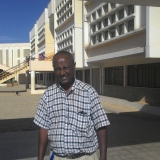Most of the studies so far/literature on rural fuel demand and supply, in general, and those on Ethiopia, in particular, are apparently static, with no time dimension.
Nevertheless, firstly, household characteristics such as family size and composition change over time. Households generally tend to 'smooth' their consumption through borrowing and lending and through some insurance mechanisms, when their income flow overtime fails to correspond with their desired consumption pattern, or when their income fluctuates due to external shocks. Moreover, current production decisions are influenced by the desired pattern of consumption. But, more importantly, the activities such as tree growing, technological change or technology adoption, and land management or land degradation for that matter, are dynamic decision issues involving long-term investment and decision-making. All these are best suited for or analysed in an inter-temporal dynamic optimization framework.
Secondly, although such static analyses are obviously the simplest possible case to begin with, they imply a serious gap in information. For instance, in static or comparative static analysis, it is often assumed that the process of economic adjustment inevitably leads to equilibrium. However, this might not necessarily be the case.
Thirdly, off-farm employment opportunities might induce a shift in household fuel preferences through its effect on household time allocation and choice of activity. It is not clear, however, whether such labour market integration and involvement in off-farm work induce the household to differentiate into fuel buyer, be it fuelwood or more sophisticated modern fuels such as kerosene. Or whether the household turns out to be practicing farm forestry or tree growing on its own farm or homestead for fuelwood, in response to changes in relative factor and product prices.
Therefore, it would be of interest to examine the dynamics of rural fuel demand to provide new/additional insights and verify as to how or whether or not the findings and the conclusions drawn thereof significantly differ from that of the static framework.

